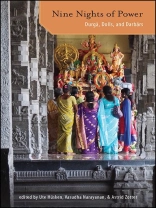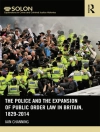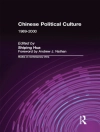Explores the rich diversity of narratives, rituals, and participants connected with one of the most important celebrations for Hindus in South Asia and in the diaspora.
The autumnal Navarātri festival-also called Durgā Pūjā, Dassehra, or Dasain-is the most important Hindu festival in South Asia and wherever Hindus settle. A nine-night-long celebration in honor of the goddess Durgā, it ends on the tenth day with a celebration called 'the victorious tenth’ (vijayadaśamī). The rituals that take place in domestic, royal, and public spaces are closely connected with one’s station in life and dependent on social status, economic class, caste, and gender issues. Exploring different aspects of the festival as celebrated in diverse regions of South Asia and in the South Asian diaspora, this book addresses the following common questions: What does this festival do? What does it achieve, and how? Why and in what way does it sometimes fail? How do mass communication and social media increase participation in and contribute to the changing nature of the festival? The contributors address these questions from multiple perspectives and discuss issues of agency, authority, ritual efficacy, change, appropriation, and adaptation. Because of the festival’s reach beyond its diverse celebrations in South Asia, its influence can be seen in the rituals and dances in many parts of Western Europe and North America.
Spis treści
List of Illustrations
Acknowledgments
Nine Nights of Power: Durgā, Dolls, and Darbārs—An Introduction
Ute Hüsken, Vasudha Narayanan, and Astrid Zotter
Navarātri as Agent of Renewal and Transformation
1. Ritual of Revitalization: The Transformative Power of the Durgā Pūjā
Hillary Rodrigues
2. Straddling the Sacred and the Secular: Presence and Absence of the Goddess in Contemporary Garbo, the Navarātri Dance of Gujarat
Neelima Shukla-Bhatt
Propriety versus Creativity in Navarātri
3. Can Didi Truly Become Durgā? The Riddle of the Two Goddesses
Moumita Sen
4. Limits of Creativity: Kolu in Brahmin Vaiṣṇava Households in Kāñcipuram
Ute Hüsken
Gendered Identities in Navarātri
5. Navarātri as a Festival of Hanumān and Male Asceticism
R. Jeremy Saul
6. Going Home for Navarātri: Negotiating Caste, Class, and Gender between Rural and Urban Rajasthan
Jennifer D. Ortegren
7. Female Agency during Tamil Navarātri
Ina Marie Lunde Ilkama
Navarātri as Instrument of Power
8. Who Kills the Buffalo? Authority and Agency in the Ritual Logistics of the Nepalese Dasaĩ Festival
Astrid Zotter
9. Domains of Dasara: Reflections on the Struggle for Significance in Contemporary Mysore
Caleb Simmons
10. The Ups and Downs of Competing Power Rituals: Dasarā and Durgā Pūjā in a Former Princely State of Odisha
Uwe Skoda
Contributors
Index
O autorze
Ute Hüsken is Professor and Head of the Department of Cultural and Religious History of South Asia at the South Asia Institute at Heidelberg University, Germany. Her books include The Ambivalence of Denial: Danger and Appeal of Rituals (coedited with Udo Simon). Vasudha Narayanan is Distinguished Professor of Religion and Director of the Center for the Study of Hindu Traditions at the University of Florida. Her books include The Life of Hinduism (coedited with John Stratton Hawley). Astrid Zotter is researcher at Heidelberg Academy of Sciences and Humanities, Germany. Her books include Hindu and Buddhist Initiations in India and Nepal (coedited with Christof Zotter).












